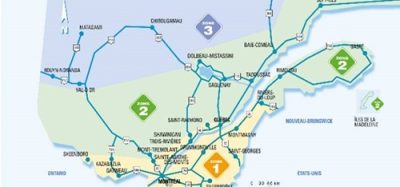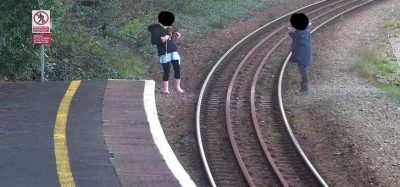The ProRail outsourcing way
Posted: 14 February 2006 | | No comments yet
ProRail, the owner of the Dutch railway network, has gone further than most European rail infrastructure companies in putting maintenance and renewal work out to tender. James Abbott, Global Railway Review’s Technical Editor asks the questions that matter to two of ProRail’s employees – Mr. Jan Swier, Strategic Advisor for Maintenance and Renewals and Mr. Anthonie Bauer, Director of Infrastructure Management.
ProRail, the owner of the Dutch railway network, has gone further than most European rail infrastructure companies in putting maintenance and renewal work out to tender. James Abbott, Global Railway Review’s Technical Editor asks the questions that matter to two of ProRail’s employees – Mr. Jan Swier, Strategic Advisor for Maintenance and Renewals and Mr. Anthonie Bauer, Director of Infrastructure Management.
ProRail, the owner of the Dutch railway network, has gone further than most European rail infrastructure companies in putting maintenance and renewal work out to tender. James Abbott, Global Railway Review’s Technical Editor asks the questions that matter to two of ProRail’s employees – Mr. Jan Swier, Strategic Advisor for Maintenance and Renewals and Mr. Anthonie Bauer, Director of Infrastructure Management.
Should an infrastructure operator undertake its own maintenance and renewal work, or should it put out to tender with outside firms? This is not only an interesting question, but also a very important question as the UK’s Railtrack came to grief over this very matter.
A serious derailment at Hatfield in the London suburbs in 2000 was found to have been caused by disintegration of a rail suffering from gauge corner cracking. The rail was well overdue for renewal, and the report into the accident catalogued a series of missed communications between Railtrack and the outside company charged with maintaining the line through Hatfield.
The uproar over the state of the track at Hatfield led to a blanket imposition of speed restrictions all over the UK, the financial meltdown of much of the British rail industry, and the eventual replacement of Railtrack, which had shares quoted on the London Stock Exchange, by a not-for-profit company – Network Rail. Not long after it was established, Network Rail took track maintenance work back in-house, although track renewal work in the UK is still in the hands of outside contractors.
Awful warning
The Hatfield experience in the UK surely stands as an awful warning to any company brave enough to take the Railtrack route of total outsourcing. Yet one European infrastructure owner, ProRail of The Netherlands, has done just that. Plainly, ProRail thinks it can manage things differently, so this is a case worth examining.
The Netherlands has taken the European directive on separating rail infrastructure from operations seriously, and ProRail is a completely separate company from the operating company NS (Netherlands Railways). Both are owned by the Dutch government and NS is ProRail’s most important customer. NS’s inter-city operations are safeguarded from competition until 2015. But even so, there are already about a dozen other operators in The Netherlands besides NS. The former freight arm of NS has been taken over by Railion, the freight division of DB, the state-owned German railway, and there is a growing number of ‘open access’ freight operators in the country. In addition, some branch lines in rural areas have been let out to independent operators (in which local authorities and bus companies often have stakes).
ProRail runs the track, signals and capacity management, holding the ring between NS and the other operators. Like the Swedish model (but unlike the UK), most of ProRail’s income comes directly from the government rather than the operators: the idea is that the government funds road improvements from the public purse and only a small proportion comes from road tax licences, and the same should hold true on the railways.
Two major new rail routes are under construction in The Netherlands: the Betuwe freight line, from the port of Rotterdam to the German border, and HSL Zuid – a high-speed passenger line running from Amsterdam to Brussels. ProRail is responsible for building the Betuwe line, and discussions are currently under way over who will maintain the line once it is operating in 2007. The HSL Zuid is built by another company within the framework of a Design-Build-Finance-Maintain contract, but ProRail will be responsible for the contract management of the maintenance once it opens in 2007.
Step-by-step change
ProRail has placed all track maintenance and renewal work with outside contractors, but it has tried to learn lessons where Railtrack went wrong. The privatisation of British Rail was a hurried affair, rushed to get finished before the 1997 election, and several aspects of it were not undertaken as well as they might have been. BR’s track maintenance and renewal operation was divided up into approximately ten packages and sold off to the highest bidders. In order to get the best price for these companies, the contracts with Railtrack – which at the time was still in the public sector – were very lax. The maintenance companies oversaw their own work, and there was little incentive in the contracts to undertake long-term ‘good housekeeping’, like ensuring lineside drains were kept free-running and the ground under the track did not become water-logged. The initial contracts were later replaced by better ones, but the shape of the contracts was a bone of contention as long as Railtrack was in existence.
Once Railtrack had shares quoted on the London stock exchange, the company’s character changed. It made a conscious effort to be something more than a boring utility: the notion was put about that this was a go-getting property company. The uniform for top managers was pin stripe suits and red braces, like financiers in the City of London – it seemed that nobody knew about high-visibility jackets for use on the trackside. Notoriously, prior to Hatfield, there was no engineer on the board of Railtrack – the company seemed to think it was above getting its hands dirty with something as mundane as railway track.
Predictably enough, this all ended in tears when the Leeds express came off the track at Hatfield. ProRail’s task has been to avoid making the same mistakes. The Dutch company began outsourcing the daily maintenance (small scale maintenance) in 1998, so they were two or three years behind the UK. In the beginning, the 39 contracts were managed on input in a 1:1 relationship. The sector has developed itself now so that all the contracts will be publicly tendered in the period 2007-11 based on performance and process specifications. However, unlike the UK, there has been no rush to privatise the Dutch infrastructure operator, which remains government owned. This involvement of the government means there is a strong public service ethos, but at the same time there is real competition for contracts. Three private sector companies, Strukton, Volker Stevins (which is part owned by the Dutch-British steel company Corus) and BAM, have important shares of the track maintenance market.
“There has been a big difference in culture” opines Jan Swier, ProRail’s Strategic Adviser for Maintenance & Renewals. “The Anglo-Saxon way of outsourcing is based on the letter of the contract between the infrastructure owner and the contractor, whereas there has been more of an attitude of co-operation in Holland. When we started outsourcing maintenance, we thought it was very important that there should be co-operation between ProRail and the maintenance contractors.”
Quality of inspection is vital
One area in which Railtrack fell down was the quality of inspection of the track – a failing which ultimately resulted in the Hatfield disaster. ProRail has been quick to learn this lesson, employing companies such as Eurailscout, the owner of sophisticated track inspection machinery, to inspect the Dutch railway system. Records from big on-track recording machines are complemented by visual inspections at the trackside, with inspectors noting track condition on hand held machines that can be downloaded onto computers. All track is inspected approximately twice a month, and busy main lines can be inspected as often as once a week.
“In the beginning we were not sure this outsourcing inspection was a wise course of action, but now we are very happy we have done it” says Mr. Swier. “Inspections have improved and are much better managed. There is now no problem in getting the data, extracting the right information out of it is the difficult thing. “The information about track quality is owned by ProRail but distributed to two parties: ProRail and the maintenance contractors” explains Mr. Swier. “Knowledge about the condition of the track is absolutely vital” adds Anthonie Bauer, ProRail’s Director of Infrastructure Management. “It means we are able to check that the contractor is acting responsibly and the contractor has the right information to plan his maintenance activities.”
ProRail decides on the heavy maintenance and renewal programme, with maintenance worth approximately €100 million annually and renewal approximately €225 million. The big difference with small scale maintenance is that the workpackages are projects with a concrete product, with a clear start and end, and with large periods between actions. It is much easier to tender and manage those contracts. There are no plans to integrate the heavy maintenance and renewals in the maintenance contracts.
Grinding programme
Railtrack ceased grinding rails a few years before the Hatfield accident, when the phenomenon of gauge corner cracking was not well understood. Network Rail has since put in place an extensive grinding programme, seeking to grind cracks off the railhead before they can propagate down into the railhead and precipitate a rail break and a derailment. A fleet of grinders has been bought for the UK from US companies Loram (plain line grinders) and Harsco (switch and crossing grinders).
In The Netherlands, rail grinding has long been practised. In 2004, approximately 1,000km of the 5,000km main-line track in the country was visited by the grinder. “We are now in a phase of corrective grinding,” says Jan Swier, “but next year we intend to move to preventive grinding, which is both easier and cheaper and keeps the track in the right condition before it has a chance to deteriorate.” Like maintenance and renewal, the grinding operation is let out to private sector companies.
Adopting new technology
ProRail is keen to adopt new technology where it can improve knowledge of asset condition and help to prevent failures. For example, approximately 1,000 switches in The Netherlands have been equipped with remote condition monitoring equipment, in which the current passing through the motor is measured and any variances reported to a central control point via the telephone system. This allows early attendance by maintenance teams in the event of a breakdown.
Rolling stock and infrastructure maintenance engineers are cooperating in the Quo Vadis system, which helps to ensure trains and track are working smoothly together. Approximately 40 measuring points around the country note passage of wheels and tonnage. Each train is tagged, so in the event of an out-of-round wheel passing, rolling stock depots can be advised that tyre turning is necessary. Accurate records about the frequency and weight of trains compiled by Quo Vadis allow the infrastructure engineers to plan the work programme more effectively.
A promising development is the introduction of risk management techniques and instruments in the sector. Risk analysis and maintenance concepts make it possible to relate performance risks to costs and to manage this relationship explicitly. It has also been found to be a very good way to manage and tranfer knowledge about maintenance.
A lesson for Europe?
Has The Netherlands found a holy grail, in which high quality maintenance of the system is combined with competitive tendering to keep the prices down? “We are developing in the right direction, but are still in the learning and implementation phases” says ProRail’s Mr. Swier.
“We are accomplishing the right quality measuring system with the right inspection regime, the right management techniques, the right contracts and the right attitudes. It is incredible how the organisation and the whole rail infrastructure sector in The Netherlands is changing as we attempt to get things right. Many countries are looking at developments in Holland with interest.”







